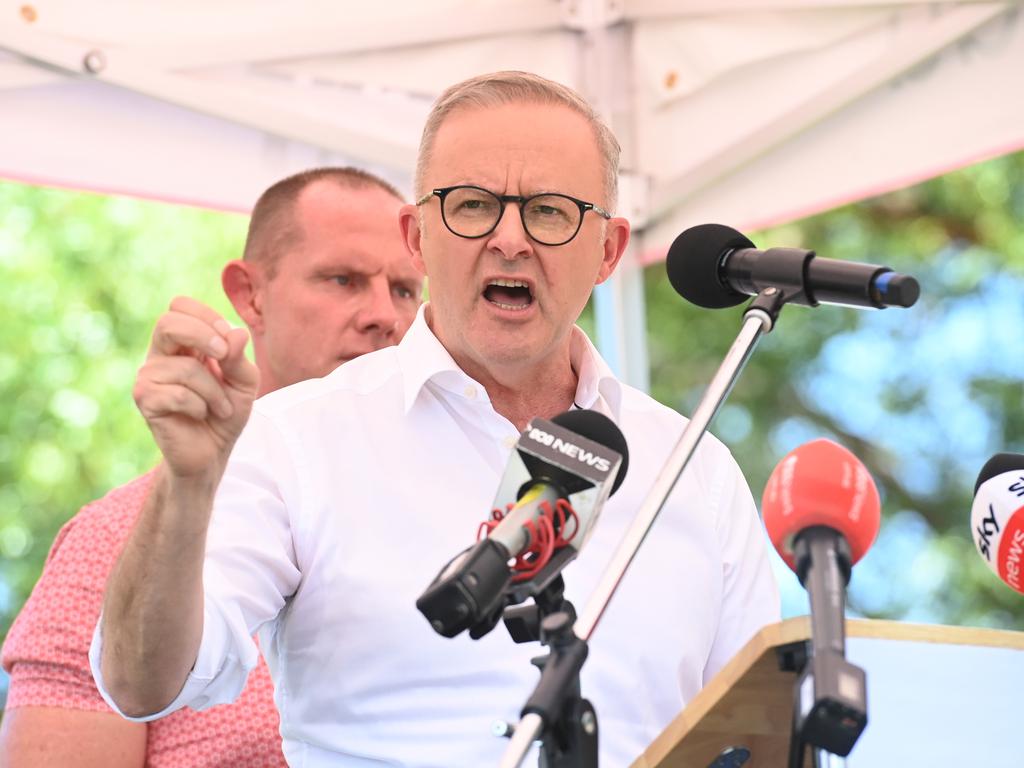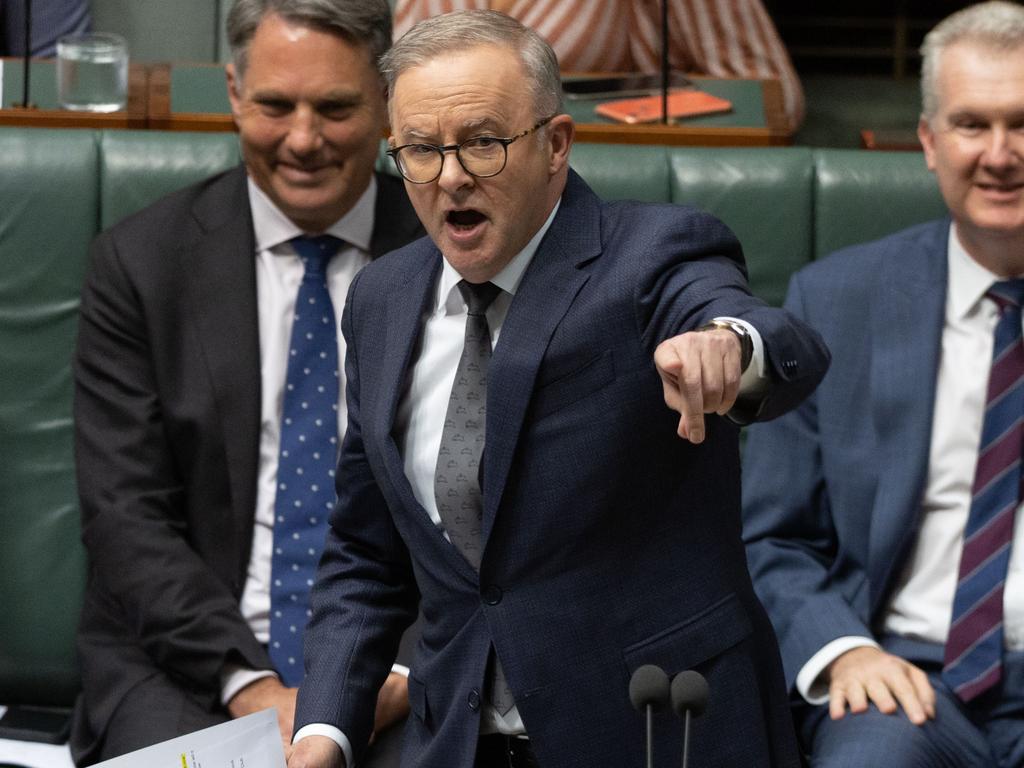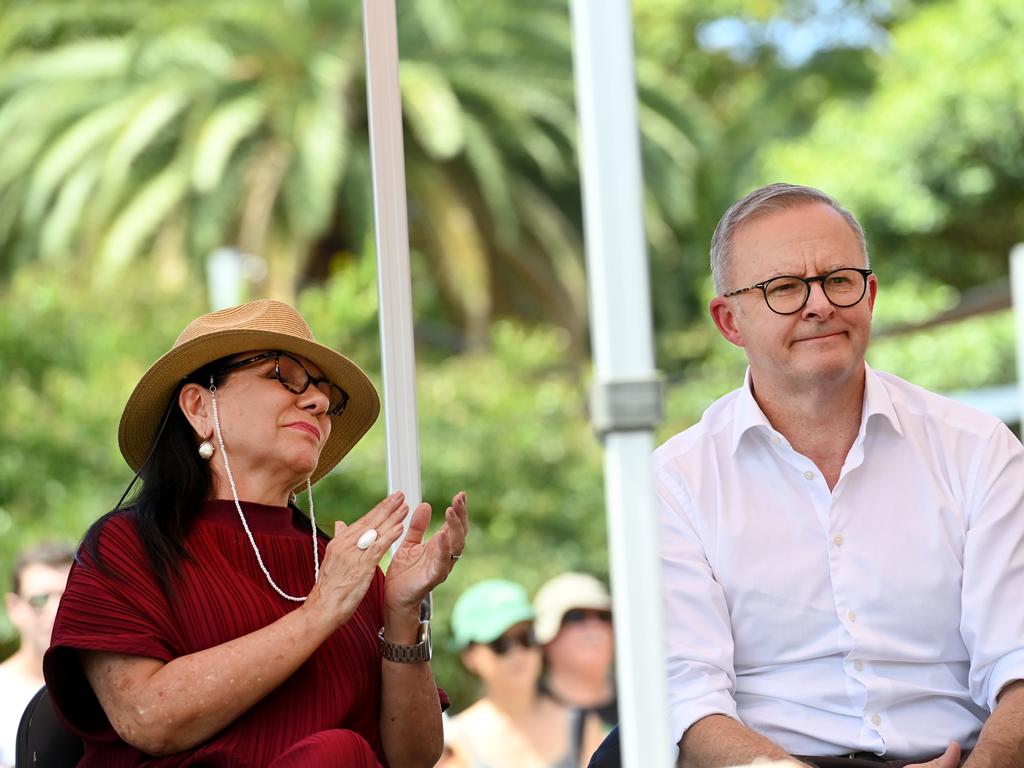Referendum working group urges Anthony Albanese to empower the Indigenous voice to advise executive government and parliament
Working group urges PM to empower voice to advise executive government plus parliament, but Labor faces push to restrict advice.

The referendum working group has urged Anthony Albanese to empower the Indigenous voice to advise executive government as well as federal parliament, but Labor faces a last-minute push to restrict the advice of the new body to parliament and ministers of the crown – carving out the public service from its remit.
Cabinet will meet on Thursday morning following a pivotal meeting on Wednesday between Anthony Albanese and his referendum working group to finalise the constitutional amendment, heightening expectations that a final wording could be unveiled before the end of the day.
Ahead of the working group meeting on Wednesday, ministers received alternative proposals from senior jurists that would limit the scope of the voice to advising only the federal parliament and ministers as part of an effort to maximise the chances of a successful referendum.
The Australian can reveal that cabinet ministers were advised in a flurry of meetings on Wednesday that the government should take out “executive government” from the draft constitutional amendment and replace it with “ministers of the crown” to prevent public servants from being buried in demands for consultation from the voice.
The last-ditch effort coincided with two government concessions on the referendum machinery bill that delivered fairer treatment of the No campaign and secured the Coalition’s backing, ensuring the voice would clear its first parliamentary hurdle with bipartisan support.
The bill passed the Senate on Wednesday night, with Indigenous Australians Minister Linda Burney saying the nation was “one step closer to the voice referendum”.
The Prime Minister’s draft constitutional amendment currently states the voice “may make representations to parliament and the executive government on matters relating to Aboriginal and Torres Strait Islander Peoples”.
The referendum working group called on the Prime Minister to keep executive government in the amendment’s wording. Indigenous leaders said it was one of their key principles for the voice.
A fortnight ago, several working group members warned that Attorney-General Mark Dreyfus was attempting to water down the power of the voice to advise executive government through a new addition to the draft constitutional amendment.
Mr Dreyfus’s proposed wording clarified that it would be up to parliament to decide what obligations the executive government had to consider and respond to the voice’s representations.

Referendum working group member Megan Davis, the Balnaves chair for constitutional law at the University of NSW, said the working group was “so close” to finalising its advice to government on the best form of words to be put to Australians at the referendum, so the Constitution Alteration Bill could be introduced to parliament next week. Cabinet and the Labor caucus will need to sign off on the proposed referendum question and wording before the bill is presented to the House of Representatives.
“(We are) so close to doing what grassroots communities across the country have asked for,” Professor Davis said. “So close to taking the next historic steps towards a successful Yes vote. We’re putting the finishing touches on this historic change.
“The referendum working group has already agreed to key design principles: that the voice provides independent advice to the parliament and the government. That it’s chosen by First Nations people based on the wishes of local communities. That it is representative of Aboriginal and Torres Strait Islander communities. That it’s empowering, community-led, inclusive, respectful, culturally informed and gender balanced and includes youth. That the voice is accountable and transparent and it works alongside existing organisations.

“The voice will not have a veto and the voice will not have a program delivery function.
“Australia, let’s get this done together. Walk with us in a movement of the Australian people for a better future.”
Several members of the 21-person group, including Professor Davis, Marcia Langton, Pat Anderson, Thomas Mayo and Tony McAvoy, were at Parliament House to meet Mr Albanese, Ms Burney and Mr Dreyfus on Wednesday night.
Former Liberal Indigenous Australians minister Ken Wyatt dialled into the meeting remotely.
As the deal between the major parties on the referendum machinery bill was clinched, guaranteeing its passage through the Senate, Nationals senator Jacinta Nampijinpa Price was vowing to cross the floor and vote against it because the Coalition had failed to convince the government to establish and fund official Yes and No campaigns.
Under the agreement, the government will provide deductible gift recipient status to No organisations, just as it gave Australians for Indigenous Constitutional Recognition DGR status in last year’s budget.
It means donations for a Yes and No organisation will be tax deductible during the referendum campaign. The government will also only be able to fund a “neutral” civics and education program, allowing any public funding on activities considered partisan to be legally challenged.
The Greens accused the Coalition of “caving” on its original demand for official campaigns, while government sources insisted the DGR status for Yes and No organisations amounted to a “quasi” approval of official campaigns.
Opposition special minister of state Jane Hume said without the changes the Coalition was very concerned the government “had its thumb on the scales”, meaning it could unfairly influence the referendum outcome without those checks and balances.
“They (the government) have come a long way from their denial to provide information to voters (via an official pamphlet) and refusal to provide equal treatment for Yes and No cases,” she said.
“We still have concerns about the integrity around the referendum and in particular the ability of agencies to monitor foreign interference, foreign donations and donations limits – the very reason the machinery bill needed updating. We will continue to fight for official Yes and No campaign organisations to be established. These measures are fundamental to having a referendum outcome that Australians can trust.”







To join the conversation, please log in. Don't have an account? Register
Join the conversation, you are commenting as Logout